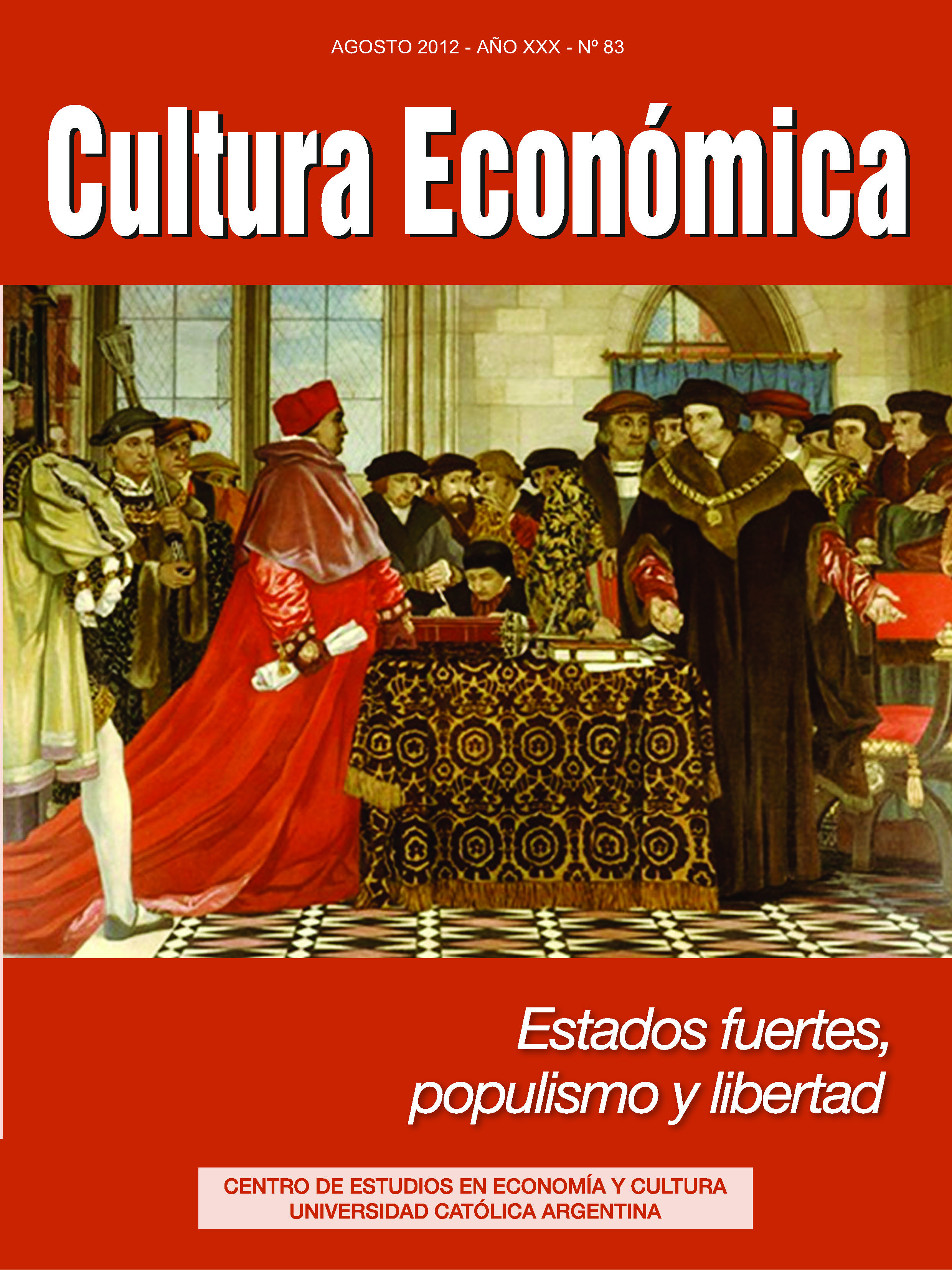Republican Democracies and Strong States after the Crisis
Keywords:
STATE, BRIC, ECONOMIC DEVELOPMENT, CRISIS, DEMOCRACY, REPUBLIC, GLOBALIZATIONAbstract
The article analyzes the current global economic development since the crisis of the mortgages of 2008, which outlines the end of the neoliberal paradigm. Facing weak republican democracies, the strong States of the emerging countries and BRIC have become the global economic driving force. The author examines the precise case of China and Russia, central models of the strong States, and then studies the developmental strategies of Brazil and Argentina. These cases illustrate that in the new forms of economic organization, strong States are the main core. Observing this fact in the light of the Social Doctrine of the Church, the author indicates the risk that this implies to the detriment of the democratic system, where the center of the economy is the human being.
Downloads
References
Benedicto XVI (2009). Caritas in Veritate. Ed. Paulinas.
Bresser-Pereira, Luiz Carlos (2003). Desenvolvimento e Crise no Brasil: 1930-2003. Sao Paulo. Editoria 34.
(2007). “Novo desenvolvimento e ortodoxia convencional”, en Globalização, Estado e desenvolvimento - Dilemas do Brasil no novo
milênio. Fundação Getulio Vargas.
Curia, Eduardo (2008). Teoría del modelo de desarrollo de la Argentina. Las condiciones para su continuidad. Buenos Aires, Galerna.
Jaguaribe, Helio (2004). Argentina y Brasil. Problemas y perspectivas ante el siglo XXI. Instituto de Estudos Políticos e Sociais.
Knight, John (2007). China, South Africa and the Lewis Model. Department of Economics, University of Oxford.
Krugman, Paul (2004) The Myth of Asia’s Miracle. http://web.mit.edu/krugman/www/ myth. html
Helpman, Elhanan, Oleg Itskhoki and Stephen Redding (2008). “Inequality and Unemployment in a Global Economy”. NBERr working paper series. Working Paper 14478.
O’Connor, Ernesto (2010). “El Neodesarrollismo brasileño como propuesta de desarrollo para Argentina”. Estudios Económicos de
Desarrollo Internacional/ Economic Studies of International Development. Volumen 10-2 Julio-Diciembre. Universidad de Santiago
de Compostela.
Resico, Marcelo (2012). “El capitalismo de estado como modelo no sustentable”. Informe de Economía e Instituciones. Programa de Estudios en Economía e Instituciones. Escuela de Economía “Francisco Valsecchi”, UCA. Año 5 – Nº 1.
Rodrik, Dani (2011). The Globalization Paradox: Democracy and the Future of the World Economy. New York. W.W. Norton & Co.
(2005). “Nuevos enfoques en la economía mundial”. Boletín Informativo Techint 318.
Sachs, Jeffrey (2011). The Price of Civilization: Reawakening American Virtue and Prosperity. Random House.
Siscú João, Luiz Fernando de Paula e Renaut Michel (2005) Novo-Desenvolvimentismo: um projeto nacional de crescimento com equidade
social. Editora Manole. Fundação Konrad Adenauer.
Vietor, Richard H. K. (2007). How Countries Compete. Strategy, Structure, and Government in the Global Economy. Boston, Massachusetts. Harvard Business School Press.
Downloads
Published
How to Cite
Issue
Section
License













